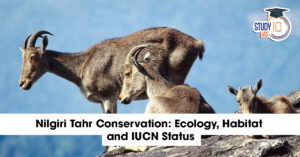Table of Contents
The BioCARe Programme, launched by the Department of Biotechnology (DBT), Ministry of Science & Technology, Government of India, is a flagship initiative to enhance the participation of women scientists in biotechnology and allied fields. Recently, concerns have been raised as 75 selected women researchers faced delays in sanction letters and salaries, affecting their research work. Despite such setbacks, the programme remains a cornerstone in supporting women’s contribution to science and innovation.
What is the BioCARe Programme?
The Biotechnology Career Advancement and Re-orientation (BioCARe) Programme is designed exclusively for women scientists who want to pursue independent research but lack access to prior extramural funding. It provides financial assistance, research grants, and mentorship support to women researchers in temporary or unemployed positions, ensuring that their careers are not stalled due to systemic or social barriers.
Objectives of the BioCARe Programme
-
To empower women scientists in the field of biotechnology.
-
To bridge the gender gap in science and research.
-
To provide financial support to women researchers who have not previously received extramural project grants as a Principal Investigator (PI).
-
To encourage interdisciplinary research and innovation in biotechnology.
Key Features of BioCARe
-
Age Limit: Women scientists below 55 years of age are eligible.
-
Eligibility:
-
Women in unemployed or temporary positions.
-
Applicants must not have availed any extramural research grant as PI earlier.
-
-
Support Areas:
The programme covers diverse domains in biotechnology, such as:-
Animal and Marine Biotechnology
-
Bioengineering and Biomaterials
-
Medical Biotechnology
-
Environmental Biotechnology and Bioenergy
-
Plant and Agricultural Biotechnology
-
Importance of the Programme
The BioCARe initiative plays a vital role in addressing the gender imbalance in scientific research. With women often facing challenges such as career breaks, limited funding, and lack of institutional support, the scheme ensures that talented researchers get an opportunity to contribute meaningfully to India’s biotechnology sector.
Current Challenges
Recently, the programme faced criticism as 75 selected women researchers experienced delays in sanction letters and salary disbursements, disrupting their ongoing projects. Such administrative hurdles can demotivate researchers and hinder the pace of scientific progress. However, experts believe that streamlining the sanction process and ensuring timely fund allocation will restore confidence in the scheme.
Way Forward
For the BioCARe programme to achieve its full potential, the following steps are crucial:
-
Timely release of funds to avoid disruptions in research.
-
Strengthening institutional support for women scientists.
-
Periodic monitoring and evaluation to ensure transparency.
-
Expanding the scope of the programme to include more women researchers across disciplines.
Conclusion
The BioCARe Programme is not just a research grant—it is a lifeline for women scientists in India striving to make a mark in biotechnology. While recent delays in sanction letters have posed challenges, the initiative continues to symbolize hope and empowerment. By ensuring better implementation and support, BioCARe can significantly contribute to India’s vision of inclusive growth in science and technology.


 Graphic Processing Units (GPUs) – Work...
Graphic Processing Units (GPUs) – Work...
 Gold Imports and the Indian Economy – ...
Gold Imports and the Indian Economy – ...
 Nilgiri Tahr Conservation: Ecology, Habi...
Nilgiri Tahr Conservation: Ecology, Habi...




















